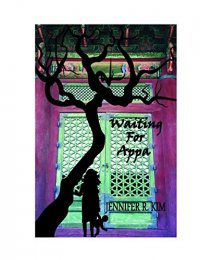Waiting for Appa traces the pain and confusion of Eunhae, who continues to clutch to her dead father’s memory like the ashes she refuses to toss into the sea during his memorial.
Eunhae is nine years old when she bids a tearful farewell to her father, who leaves their home in South Korea in search of a better life in America for his family. As her Appa tries to comfort her with his parting words, “Love will etch our faces in each other’s hearts. We won’t forget,” Eunhae can’t shake the icy fear that overwhelms her.
Two years later, when Eunhae and her mother immigrate to America to reunite with her father, they are greeted at San Francisco International Airport with horrific news-Appa is near death-the unfortunate victim of a job site accident. Much to her dismay, Eunhae’s father eventually dies and she and her mother are left alone in the world. As they experience cruelty at the hands of relatives, they also find reassurance in the kindness of strangers, but Eunhae is changed forever by the devastating loss.
Twenty years later, Eunhae still lives her life clinging to the memories of her father and a life denied, shutting out all those who love her. Troubled by the shame and hostility surrounding her father’s death, she goes in search of answers and uncovers far more than she ever expected.
This book will appeal to a broad spectrum of readers because it’s really about several universal themes we can all identify with – the unbearable loss of a loved one, the unrelenting grief that comes from not knowing the whole story, and the joys of life that can easily slip through ones fingers if one refuses to live in the present. Finally, with knowledge comes some measure of peace and contentment, and with understanding comes wisdom to live the life to the fullest.
Judge’s comments from 18th Annual Writer’s Digest Self-Published Book Awards:
Waiting for Appa is a poignant and intelligent novel. The dialogue has the ring of “real” speech, and the narration is fluent and concise. The descriptions are vivid and controlled. The prologue and epilogue nicely frame the story, and the central character’s epiphany in the end is eloquently expressed.





